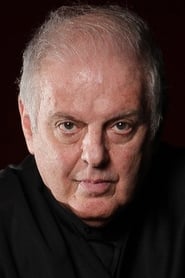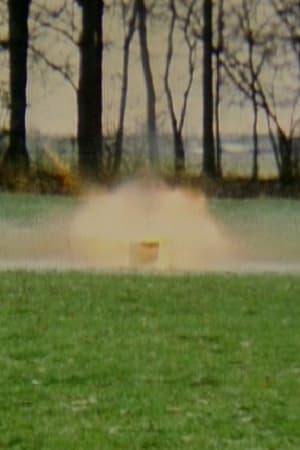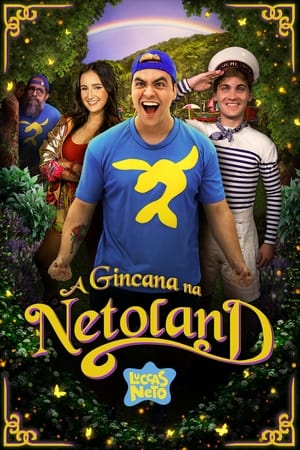Bruckner Symphony No. 4
Top 2 Billed Cast
Self

Bruckner Symphony No. 4
HomePage
Overview
Daniel Barenboim is an expert in exploiting the impact of cyclical performances of composers works: This time he focuses his sharp intellect on all six of Anton Bruckners mature symphonies. Der Tagesspiegel described Barenboim's performance of the works with the Staatskapelle Berlin on six nearly consecutive evenings in June 2010 as a superhuman accomplishment and went on to praise how: His Bruckner is conceived and performed very theatrically, like an opera without words. Bruckners famous Romantic Symphony No. 4 forms the prelude to a spectacular DVD series from Accentus Music and Unitel Classica, exploring Bruckners symphonic cosmos.
Release Date
2010-02-16
Average
6
Rating:
3.0 startsTagline
Genres
Languages:
EnglishKeywords
Similar Movies
 0.0
0.0The Metropolitan Opera Centennial Gala(en)
In celebration of its 100th anniversary in 1983, the Metropolitan Opera hosts a four-hour performance uniting some of the world's most spellbinding opera singers and conductors. The event includes a ballet from Samson et Dalila and boasts incredible classical performances from Kathleen Battle, Plácido Domingo, Jose Carerras, Leonard Bernstein, Marilyn Horne, Leona Mitchell, Luciano Pavarotti and many more.
 10.0
10.0Summer Night Concert: 2014 - Vienna Philharmonic(en)
The renowned orchestra presents the world's biggest annual classical open air concert live from their hometown Vienna, Austria on Thursday, May 29th, 2014. The Summer Night Concert with the Vienna Philharmonic is an annual open-air event that takes place in the magical setting of the Schönbrunn Palace Park in Vienna with the palace as a magnificent backdrop. Everyone is invited to come to this unique occasion with free admission. Each year up to 100,000 people can take up the invitation, or enjoy on radio and TV in over 60 countries.
 0.0
0.0London Symphony Orchestra: The Young Debussy(en)
The evocative music of Claude Debussy has been described as the foundation of modern music. But how did the composer come to develop his unique style? On this video, maestro Francois-Xavier Roth and the London Symphony Orchestra present the UK premiere of a previously lost work by the young Debussy, alongside some of his earliest inspirations. Debussy's newly discovered Premiére Suite gives a rare insight into the mind of a young composer on the cusp of innovation. It's a work filled with Romantic and Eastern influences and glimpses of the unexpected harmonies that came to define Debussy's work. Paired alongside the composer's role models - from Wagner's powerful intertwining motifs, the abundant Spanish influences in Lalo's rarely-heard Cello Concerto performed here by Edgar Moreau, and Massenet's majestic Le Cid - Francois-Xavier Roth gives a fresh perspective on the much-loved composer.
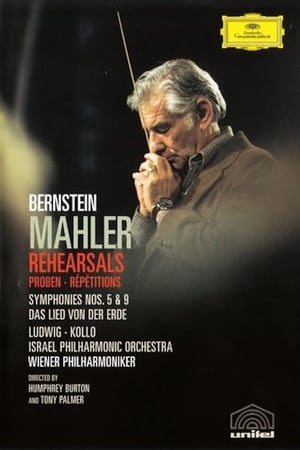 7.0
7.0Bernstein Mahler Rehearsal(en)
"Four Ways to Say Farewell" is a personal introduction to Mahler and his Ninth Symphony, during which Leonard Bernstein is seen and heard rehearsing the Vienna Philharmonic Orchestra. Filmed in 1971, this rehearsal was directed by Humphrey Burton,
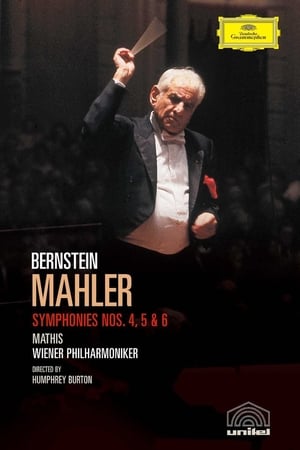 10.0
10.0Mahler - Symphonies Nos. 4, 5 & 6(en)
For Mahlerites, his symphonies are much more than musical performances--they can be an emotional or spiritual journey through the struggles, fears, and triumphs of life. This Sixth Symphony is a 1976 performance in the Vienna Musikvereinssaal with PCM stereo and DTS 5.1. The 2 dvd set also includes the 4th and 5th symphonies, which are performed as magnificently as the Sixth.
 0.0
0.0Beethoven Piano Concertos 1-5(en)
These recordings, filmed in March and April 1974 for the BBC, occurred at the tail end of the old performance era and the very start of the new. Vladimir Ashkenazy was a graduate of the same Soviet school of piano playing that produced Sviatoslav Richter, Emil Gilels, Lazar Berman and a host of others of that era. There are simularities that unite them, including a broad romanticism, a degree of Lisztian showmanship coupled with periods of introspection, powerful technique that occasionally borders on pounding and an intellectual streak that produces some deeply insightful playing. Ashkenazy was younger than the others, more modern in his playing.
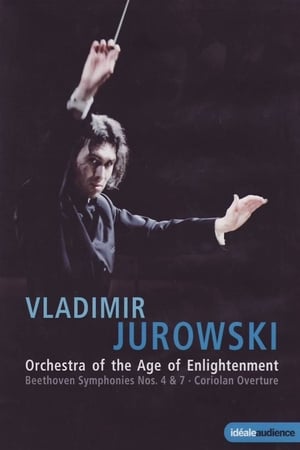 0.0
0.0Beethoven Symphonies Nos. 4 & 7; Coriolan Overture(en)
From the very first bars of the Coriolan Overture, it is apparent that this is Beethoven at his very best. Vladimir Jurowski and his absolutely brilliant Orchestra of the Age of Enlightenment give us a new reading of old favorites that may well blow you out of your chair. There is plenty to discover: sounds and textures never heard before, an orchestral timbre as the composer himself may have envisaged and heard, incredible strength and cohesion and, on the other hand, sensitive nuances that often disappear under a blanket of massed strings in more traditional interpretations.
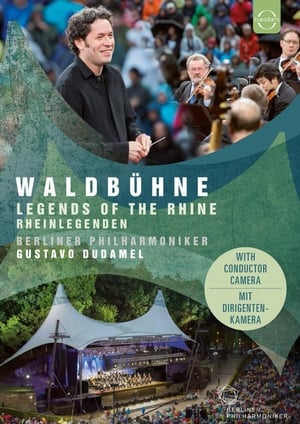 8.0
8.0Waldbühne 2017 | Legends of the Rhine(de)
For their annual season end concert, the Berliner Philharmoniker take the audience on a dreamy, magically journey through the river Rhine with Schumann’s beloved 3rd Symphony Rhenish. Pieces from Wagner’s Der Ring des Nibelungen under the baton of dynamic conductor Gustavo Dudamel complete this evening.
 0.0
0.0Karajan in Rehearsal(en)
Karajan conducts rehearsal and performance of Schubert's Symphony No. 4 with the Vienna Symphony in Vienna, Nov. 1965, and Beethoven's Symphony No. 5 with the Berlin Philharmonic, January 1966. Henri-Georges Clouzot directs.
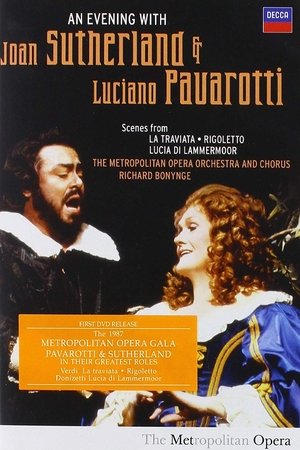 8.0
8.0An Evening with Joan Sutherland and Luciano Pavarotti(en)
Opera greats Luciano Pavarotti and Joan Sutherland -- one of the most acclaimed tenors and one of the most beloved sopranos of the 20th century -- take the stage at the Met for a gala evening of opera scenes with special guest Leo Nucci. Filmed in 1987, the memorable program includes scenes from the first and third acts of Donizetti's "Lucia di Lammermoor," the third act of Verdi's "La Traviata" and the third act of Verdi's "Rigoletto."
 0.0
0.0Bruckner: Symphony No. 7(en)
In Anton Bruckner’s 7th Symphony, the listener encounters a music characterized by great spaciousness and profound solemnity, a music which speaks of grief and lamentation, but also of their transcendence. With its monumental architecture and intensity of sound, the symphony has moved listeners ever since its triumphal premiere in 1884. The Guardian calls Daniel Barenboim’s London interpretation “Tremendous … Barenboim and the Staatskapelle seem to have this work in their systems, and the overall impression was of music unfolding organically at its own pace rather than of a work being self-consciously interpreted or led.” Anton Bruckner Symphony No. 7 in E major (original version) Daniel Barenboim, conductor Staatskapelle Berlin Recorded live at the Philharmonie Berlin, 25 June 2010
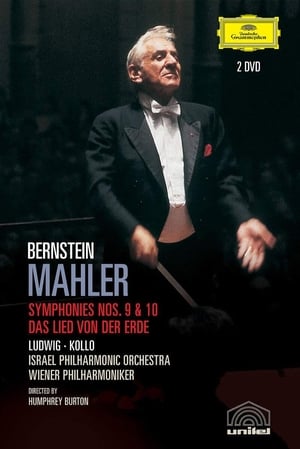 10.0
10.0Mahler - Symphonies Nos. 9 & 10 / Das Lied von der Erde(en)
Filmed on tour at Berlin's Philharmonie, this account of the valedictory Ninth Symphony is an intense interpretation, expressing Bernstein's conviction that modern man had at last caught up with the message encoded in Mahler's last completed work. Having made his famous 1966 studio recording of "Das Lied von der Erde" in Vienna, Bernstein re-recorded this in Israel with the same searing subjectivity. René Kollo draws on the voice of a great Wagner tenor, while Christa Ludwig, the greatest exponent of the contralto songs at the time, is unbearably poignant in the final movement's fusion of elation and sadness.
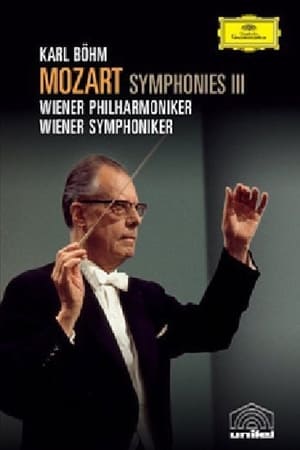 0.0
0.0Mozart Symphonies Vol. III - Nos. 28, 33, 39, "Serenata Notturna" and Karl Böhm documentary(en)
Almost any recording of a Mozart symphony by Austrian conductor Karl Bohm (1894-1981) is a sure thing: excellent sound, and sensible, solid, non-sentimental interpretation. This DVD has 3 Mozart Symphonies, all conducted by Bohm: Nos. 33 and 39 with the Vienna Symphony, recorded in Studio-Wien in 1969, and a live 1970 performance of Symphony 28 with the Vienna Philharmonic, filmed in the Musikvereinsalle in Vienna. All 3 symphonies have excellent film quality and sound, although some viewers may prefer Symphony 28, as the presence of a live audience really brings out the best in the Vienna Philharmonic.
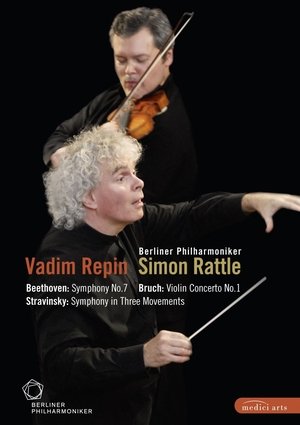 0.0
0.0Europakonzert 2008 from Moscow(de)
The Berliner Philharmoniker’s European Concert, held each year on 1 May, is invariably an international highlight. Performing in 2008 in Moscow's renowned Tchaikovsky Conservatory, the orchestra under Sir Simon Rattle presented outstanding performances of works by Beethoven, Stravinsky and Bruch, whose Violin Concerto featured one of today’s most fascinating artists, the Russian violinist Vadim Repin. Stravinsky: Symphony in Three Movements Bruch: Concerto for Violin No.1, op.26 Beethoven: Symphony No.7 in A major, op. 92
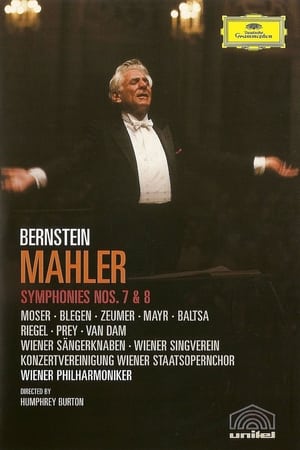 0.0
0.0Mahler - Symphonies Nos. 7 & 8(en)
Leonard Bernstein made these recordings during his wonderfully productive collaboration with the Wiener Philharmoniker in the mid-1970s when he was at the peak of his career. Humphrey Burton's direction is, as always, very fine, giving the viewer/listener both the larger picture and highlighting individual soloists, players or groups of musicians and, of course, the maestro. The video and audio tracks show their age, but are quite acceptable even for today's standards. Bernstein's Seventh is everything one could desire: dark and spooky, highly sensual, but also structurally strong and assertive where needed. Bernstein's reading does not gloss over breakdowns in tonality and the foreshadowing of later musical developments.
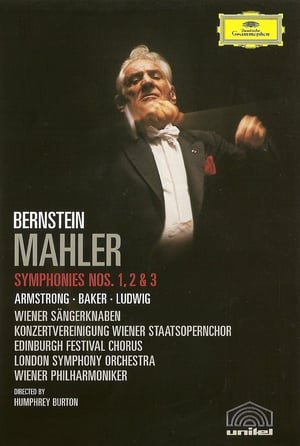 10.0
10.0Mahler - Symphonies Nos. 1, 2 & 3(en)
Beginning with the First Symphony, Bernstein reveals Mahler's position at the hinge of modernism, while emphasizing his emotional extremism. The uplifting Second "Resurrection" Symphony, with which Bernstein had an especially long and close association, is recorded here in a historic performance from 1973, set in the Romanesque splendor of Ely Cathedral. In the Third, Bernstein encompasses the symphony's spiritual panorama like no other conductor, with the Vienna Philharmonic players alive to every nuance.
 0.0
0.0Brahms The Piano Concertos(en)
Between 1981 and 1984 Leonard Bernstein recorded nearly all of Brahmss orchestral works with the Wiener Philharmoniker to honor the 150th anniversary of the composer's birth in 1983. For the concertos, Bernstein enlisted the services of some of the finest Brahms interpreters of the time: the violoninst Gidon Kremer, the cellist Mischa Maisky and the pianist Krystian Zimerman. Leonard Bernstein, Krystian Zimerman, and the Wiener Philharmoniker, it's very hard to get a better group of musicians for these masterpieces. Mr. Zimerman and Mr. Wolfgang Herzer's piano cello duets in the third movement of Brahms' second is simply tearful.
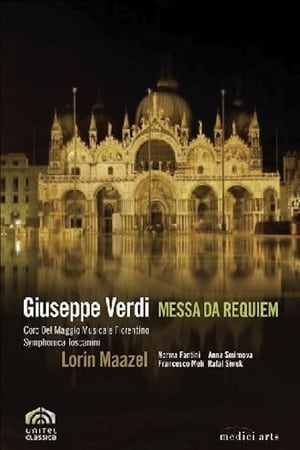 0.0
0.0Verdi Requiem(en)
The production itself is quite beautiful: recorded in the Basilica di San Marco in Venice in November 2007, it highlights the cathedral's splendor, the reverent audience, the soloists, orchestra and chorus with near-perfect cinematography. The soundtrack is also acceptable, which may have been quite a task to achieve, given the Basilica's over-reverberant acoustics. Alas, the performance itself does not rise to the occasion. Despite the occasional minor insecurity in ensemble and a visible lack of joy, the Symphonica Toscanini musicians play well, the Coro del Maggio Musicale Fiorentino members sing equally well, and the soloists are more than adequate, almost tangibly trying to excel.
 7.0
7.0Rubinstein in Concert(en)
Live 1973 concert performances by celebrated Polish-American virtuoso concert pianist Arthur Rubinstein, with the Concertgebouw Orchestra under conductor Bernard Haitink. Filmed in August 1973 at the Concertgebouw in Amsterdam, the performances include Beethoven's Third Piano Concerto, in C minor, op. 37; and Brahms's First Piano Concerto, in D minor, op. 15. These are followed by four short pieces for solo piano, by Schubert, Brahms, and Chopin. The 2008 DVD release by Deutsche Grammophon also includes a short documentary, "Rubinstein at 90", an interview with Robert MacNeil, filmed at Rubinstein's home in Paris in 1977.
 0.0
0.0Waldbühne 2009 | Russian Rhythms(de)
Every year, the Berliner Philharmoniker hold a kind of classical-music fête with a bright, cheerful concert to end the season. In 2009 about 22,000 people had come together at the Berlin Waldbühne to enjoy the traditional summer picnic concert. The theme of the evening was “Russian rhythms”, and star conductor Sir Simon Rattle, the Berliner Philharmoniker and Yefim Bronfman, one of the most famous pianists in the world today, presented a superb selection of Russian music. Repertoire Tchaikovsky: The Nutcracker, op. 71, Overture, The Christmas Tree, March, Pas de deux (Intrada) Rachmaninoff: Piano Concerto No.3 in D minor, op. 30 Stravinsky: Le Sacre du printemps Lincke: Berliner Luft
Recommendations Movies
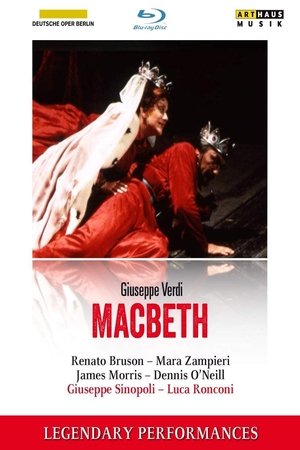 7.0
7.0Verdi: Macbeth(en)
Macbeth" was Giuseppe Verdi's first attempt at music drama and also the first manifestation of his profound love for Shakespeare's work. Verdi took great pains with this opera, displaying special enthusiasm for it as he concentrated on the main characters of Lady Macbeth, Macbeth and the witches. This recording of Luca Ronconi's production is conducted by Giuseppe Sinopoli, who brings fresh color to Verdi's score. The cast, headed by Renato Bruson and Mara Zampieri, are strongly supported by a fine-toned and adaptable chorus who ably meet the demands of Verdi's great "chorus opera.
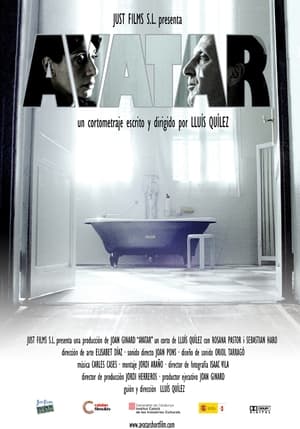 5.9
5.9Avatar(es)
Tension mounts between a quadraplegic man and his wife as she prepares a bath for him.
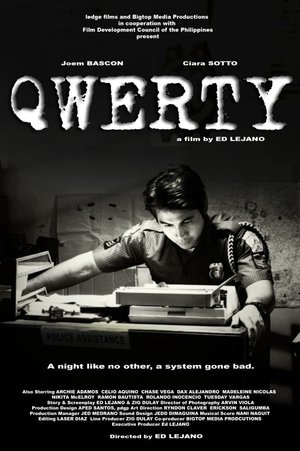 6.4
6.4Qwerty(en)
The movie is a fictionalized account of a disgruntled cop who has been wrongly implicated in a torture video that went viral. It begins on his last night of duty, as he is about to leave for abroad for better job prospects.
 7.8
7.8Naruto Bersyukur(id)
A short film by Marsha Timothy, adapted from short story “Naruto Bersyukur” by Pidi Baiq.
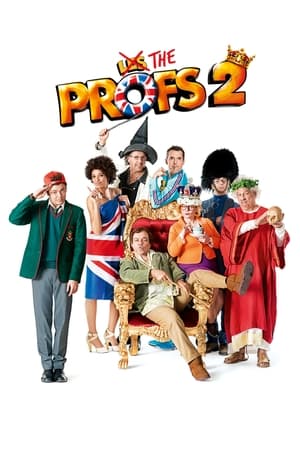 5.3
5.3Serial Teachers 2(fr)
The worst teachers of France landed in England for an ultra-secret mission. With Boulard, the King of the Dunces, they are parachuted in the best school of the country, and they will apply their famous methods on the future of the nation.
 7.0
7.0Cine Gibi 7: Bagunça Animal(pt)
Trying to escape his bath, Monicão ends up hiding in the movie theater. Mônica can't find her pet in the dark, so she asks Franjinha to play some short films that might lure the dog out of hiding.
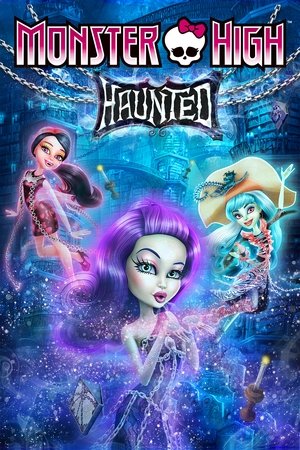 7.4
7.4Monster High: Haunted(en)
Lurk what's waiting for the Monster High ghouls when they bring their killer fashion to the howlways of the spooktacular Haunted High! When the ghouls of Monster High follow Spectra Vondergeist one day, they discover a creeperiffic Ghost World with an all-spirit school. But their scary-cute student bodies are hardly welcome with the very strict Principal Revenant, and she punishes Spectra with frightful detention chains that prevent her from re-joining Monster High. Now, it's up to the imperfectly perfect friends to take on ghostly forms in order to save one of their own from disappearing forever!
 0.0
0.0Das brennende Schaukelpferd(de)
When Gabi and Gerd find out that they are going to be parents in less than nine months, they can hardly believe their luck. A dream that finally came true after so many failed attempts. What follows are more than eight wonderful years in which they laugh, dance, argue, cry and love. Day in, day out, little Noah plays with his toy cars, runs around the apartment and his laughter lights up almost every single room. Gradually, however, the seemingly perfect life loses its loving atmosphere and increasingly strange events change the lives of the protagonists in a surreal way.
 7.4
7.4Naruto OVA 12: The Day Naruto Became Hokage(ja)
Depicts the day that Naruto Uzumaki became the 7th Hokage.
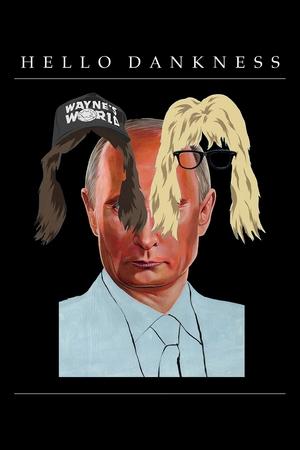 7.0
7.0Hello Dankness(en)
Comprised entirely of hundreds of pirated film samples, Hello Dankness is a bent suburban musical that bears witness to the psychotropic cultural spectacle of the period 2016 to 2021. Set in the American suburbs, the film follows a neighbourhood through these years as consensus reality disintegrates into conspiracies and other political contagions. Part political satire, zombie stoner film, and Greek tragedy, the work is also informed by the encrypted memetics of contemporary internet culture.
 7.4
7.4Re-Births(fr)
A documentary film depicting five intimate portraits of migrants who fled their country of origin to seek refuge in France and find a space of freedom where they can fully experience their sexuality and their sexual identity: Giovanna, woman transgender of Colombian origin, Roman, Russian transgender man, Cate, Ugandan lesbian mother, Yi Chen, young Chinese gay man…
 5.7
5.7Qwerty(en)
Conglomerated Assets, a brokerage firm is sinking fast as its CEO checks out and leaves the company to his inept film school drop out son. Enter Quincy, Waverly, Erica, Rudy, Tina and Yasmine. Team QWERTY--six sexy secretaries that must save the day.
 7.5
7.5Date A Live: Mayuri Judgment(ja)
A huge sphere suddenly began to emit a mysterious spiritual wave to the Tengu City that should have regained its peace. A mysterious, beautiful girl showed up at the same time. Silently, what is her purpose to cast her line of sight to Shidou and the others? The real purpose is...?
 7.3
7.3Naruto Shippuden the Movie: The Will of Fire(ja)
Ninjas with bloodline limits begin disappearing in all the countries and blame points toward the fire nation. By Tsunade's order, Kakashi is sacrificed to prevent an all out war. After inheriting charms left by Kakashi, Naruto fights through friends and foes to prevent his death while changing the minds of those who've inherited the will of fire.
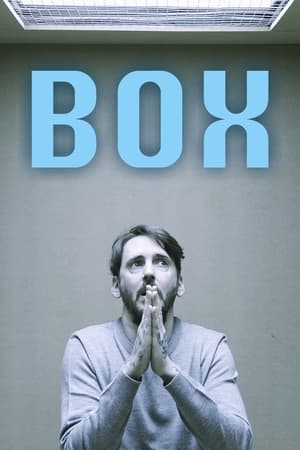 6.2
6.2Box(en)
The execution was scheduled and the last meal consumed. The coolness of the poisons entering the blood system slowed the heart rate and sent him on the way to Judgement. He had paid for his crime with years on Death Row waiting for this moment and now he would pay for them again as the judgment continued..
